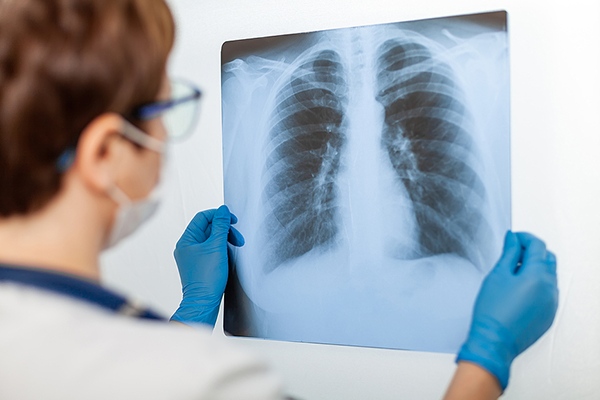Pneumonia is a lung infection that inflames the lungs’ air sacs and makes breathing difficult. It’s a serious illness, but most children easily recover with the right medical care.
Pneumonia Signs and Symptoms
For most kids, pneumonia is caused by a virus, which may begin as a cold, flu or sore throat. Some forms of pneumonia are caused by bacterial infection.
Difficulty breathing is one of the most common pneumonia symptoms; in some cases, it may be the only one. Quick, shallow breaths, as well as making noise while breathing, are some of the difficulties that pneumonia may cause.
Other pneumonia symptoms include:
- chest pain
- cough, especially a cough that produce phlegm
- fatigue
- feeling short of breath
- fever
- loss of appetite
- nausea or vomiting, especially in younger children
- shivering and/or chills
Symptoms of pneumonia usually appear two or three days after a virus.
Can I Prevent Pneumonia?
Yes, you can prevent pneumonia. Fortunately, pneumonia prevention is similar to cold and flu prevention, which includes:
- getting a flu shot each year and having your child get one, too
- washing your hands often with soap and water, or using an alcohol-based hand sanitizer if soap and water aren’t available
Maintaining a healthy lifestyle with a well-balanced diet, physical activity and the right amount of sleep can also help prevent your child from becoming sick. If your child does get sick, good health habits can promote a speedy recovery.
Come Inside, You’ll Catch Pneumonia…Right?
The association between the illness and cold weather is understandable; pneumonia is more common during cold and flu season. However, your child’s risk doesn’t change based the weather or how many layers he or she is wearing.
Pneumonia Treatment
If you suspect your child may have pneumonia, call your pediatrician right away. He or she can advise you on proper treatment.
As most cases of child pneumonia are caused by viral infections, symptom management may be the only necessary treatment. Encourage your child to drink lots of fluids and get plenty of rest.
Take your child’s temperature at least twice a day. If it reaches above 102 degrees Fahrenheit (100.4 degrees in babies younger than six months), call your pediatrician.




